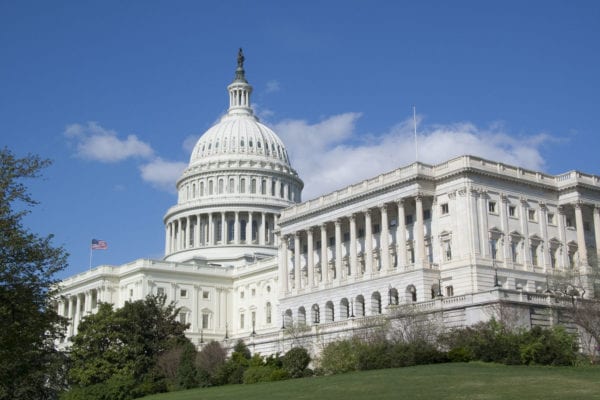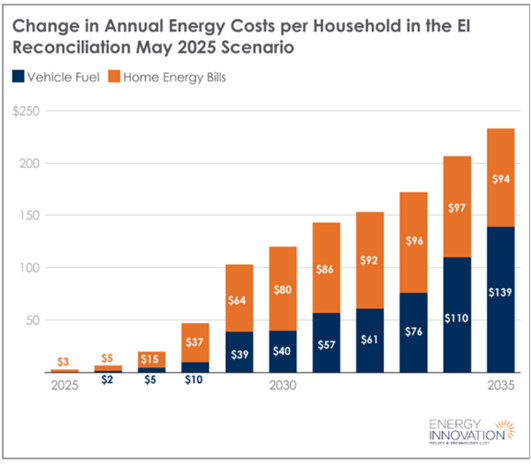You may have heard some rumblings in the news about a “Big, Beautiful Bill” (H.R. 1) that is making its way through Congress right now, but it’s actually pretty ugly.
 The proposals being led by Congressional Republicans aim to make billionaires richer by slashing programs that serve working people, all while increasing the national debt by more than three trillion dollars. For example, the wealthiest 20% of Americans will receive 68% of the tax cuts while the poorest 20% will receive 1% in 2026.
The proposals being led by Congressional Republicans aim to make billionaires richer by slashing programs that serve working people, all while increasing the national debt by more than three trillion dollars. For example, the wealthiest 20% of Americans will receive 68% of the tax cuts while the poorest 20% will receive 1% in 2026.
We won’t sugar-coat it: nearly every aspect of this bill would be bad for Maine. If it passes, Maine would lose out on billions of dollars in funding, thousands of good-paying jobs, and programs that benefit small businesses and working families. On top of that, without federal investments in U.S. and Maine-made clean energy, fuel prices and household energy bills will increase.
This budget reconciliation bill has already passed in the House, but changes are being made as it moves through the Senate. As Chair of the Senate Appropriations Committee, Senator Susan Collins has a unique and powerful opportunity to work with her colleagues to remove the most destructive provisions, but she needs to hear from Mainers about why it matters to them. (Update: Pressure Rises in Maine to Oppose Cutbacks in Reconciliation Bill.)
Clean Energy Cuts Jeopardize Domestic Job Growth
The bill is a full-throated attack on clean energy growth the U.S. It would jeopardize hundreds of thousands of jobs, raise energy costs for households and businesses, and increase climate pollution.
Federal funding made possible thanks to the Inflation Reduction Act (IRA) and Bipartisan Infrastructure Law (BIL) has already brought $2.2 billion in investment to Maine. The bill ignores these benefits by repealing the historic climate and clean energy investments passed by Congress in the IRA and allowing polluters to pay for faster environmental reviews without public scrutiny.
One recent study found that repealing clean energy tax credits by 2035 could add an average of $15 to monthly household bills in Maine, raising electricity rates by 17%. Repealing clean energy investments could mean we lose out on an additional $100 million in economic activity annually.
Nationwide, here’s how the reconciliation bill increase energy costs for Americans (source):

Repealing clean energy tax credits previously approved by Congress could retroactively kill already planned wind and solar projects in Maine that would have created jobs, lowered energy costs, and increased energy security. This is because current clean energy tax credits were intentionally designed to kick in during the construction phase and be available for 10+ years to give businesses the certainty needed to invest.
Repealing these programs will also weaken regulations on polluters and offset tax breaks that will overwhelmingly benefit the rich. For example, tax breaks in the bill cost nearly $4 trillion, which is eight times the cost of maintaining clean energy incentives.
Attacks on Public Lands and National Parks Will Block Access to the Outdoors

The Bubbles, Acadia National Park, by David Small
America’s national parks and public lands allow access to the outdoors for millions. The bill would allow for the sale of public lands and makes cuts to staffing and other critical services for the maintenance of our parks and lands.
It eliminates all remaining funding previously allocated to the National Park Service by Congress in the IRA, including $267 million that could have supported critical park staffing needs.
Katahdin Woods and Waters National Monument hasn’t been able to hire for staff positions, and Acadia National Park has more than 50 year-round vacancies.
The bill would also open up public lands to oil, gas, and coal drilling, including in the Arctic National Wildlife Refuge.
Undermining Role of Federal Agencies to Protect Our Health and Environment
The reconciliation bill will rescind funding for facilities of National Oceanic and Atmospheric Administration (NOAA) and National Marine Sanctuaries, limiting the capacity to support ocean research, climate response, and marine protected areas.
The bill cuts funding for efforts to make coastal areas more climate resilient. These changes would leave people and the environment more vulnerable to dangerous climate impacts, including wildfires and rising sea levels.
The bill also includes sweeping attacks on federal agencies, like the Environmental Protection Agency (EPA), and its ability to set and maintain regulations that protect public health and the environment. Provisions include setting an arbitrary “expiration date” for existing protections; protecting polluters who violate the law; adding more barriers for issuing new protections; and making it easier to undo new protections.
Tell Senator Collins to Protect Maine
Senator Collins is in a unique position to influence the outcome of this bill and make changes where it really counts. Please join us in urging her to:
- Protect clean energy investments and tax credits from drastic cuts;
- Stand up for our national parks and public lands; and
- Safeguard the important role federal agencies play in protecting our health and environment.
Mainers are counting on our federal delegation to protect the federal investments and programs that have already — and will continue to — benefit Maine’s economy, communities, and natural resources.
We call on Senator Collins to join with her Republican colleagues who have voiced support for clean energy investments to remove these provisions from the bill, and, if they are not removed, vote against the bill.
The health of Maine’s environment is closely linked to the health of our economy and communities. It’s up to our elected leaders to listen to their constituents and do everything in their power to protect investments in Maine’s economy, working families, and clean energy future.
—Anya Fetcher, NRCM Federal Policy Advocate











I hope this plethora of wise, critical information & data is provided by someone like Anya Fetcher in every state.
It is easy to understand and gives pause. Provides incentive to act, be involved, contact our elected representatives.
Thank you.